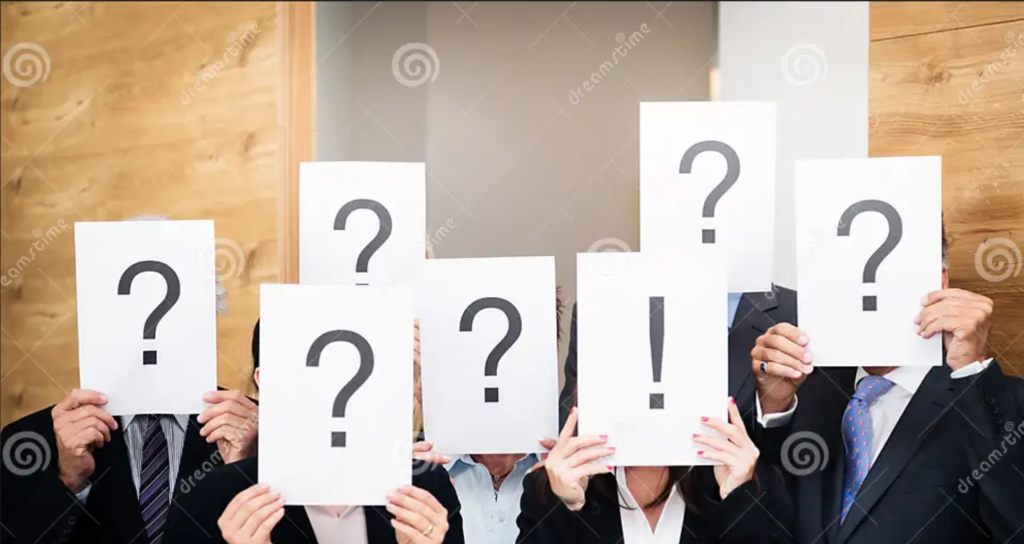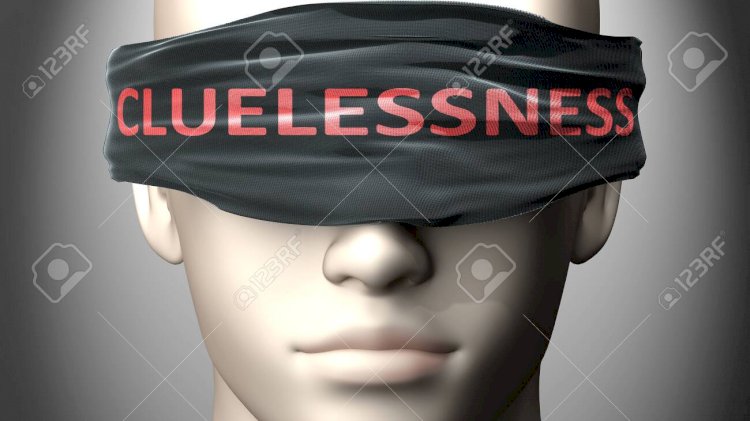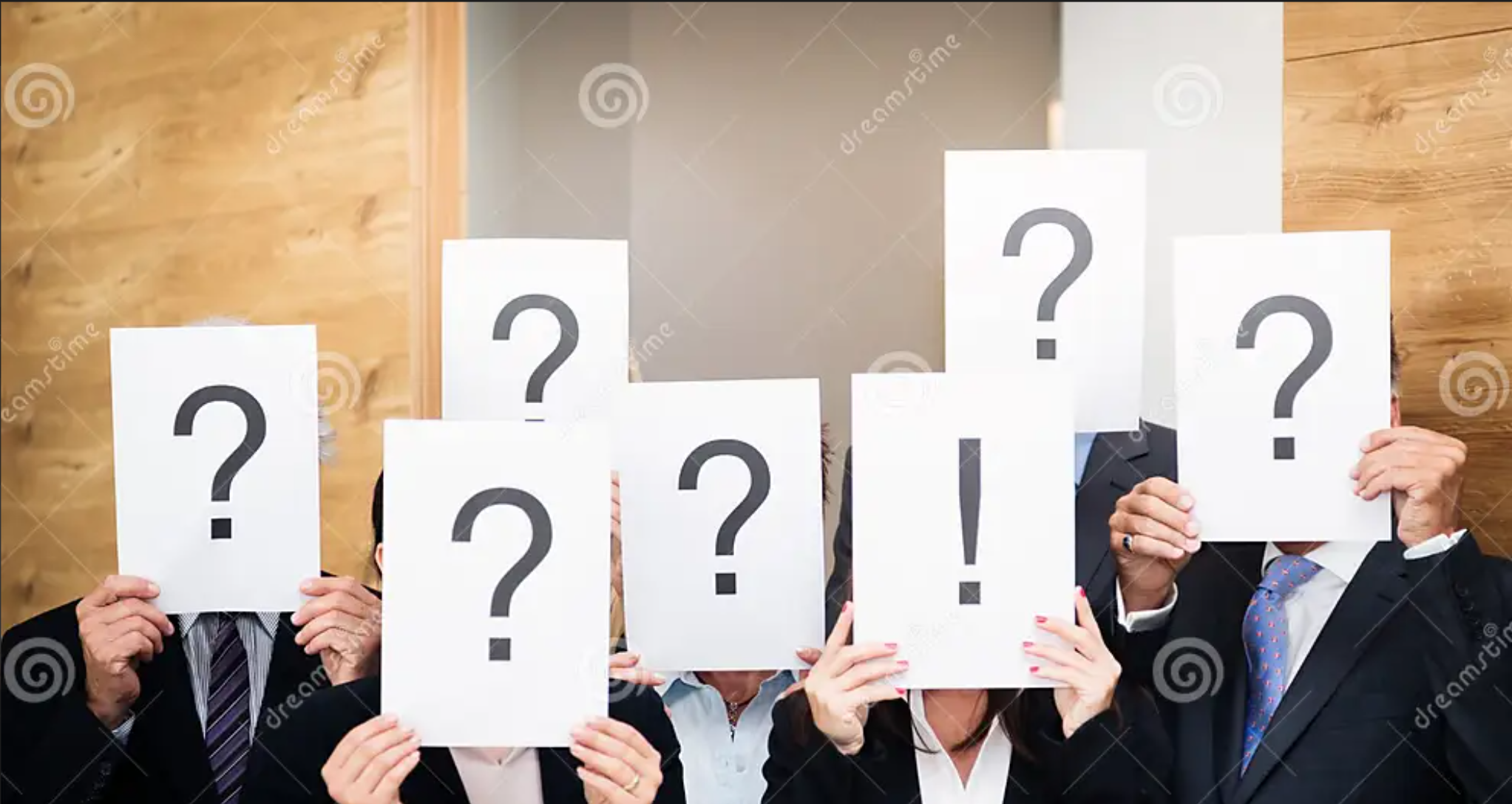All of us eventually fail at something. It is part of the human experience. The fact is, we learn best by failure. Year after year, even the best and brightest of us eventually do really dumb things. We sabotage our future, our relationships, our financial well-being, our businesses or our health by resorting to behaviors that are self-defeating. We shoot ourselves in the foot. Our problem, in most cases, is not personality or intelligence; it is cluelessness. We are clueless as to what’s really happening. Our view of our life or situation is incorrect. That’s why we don’t always get what we hope for. We implement ineffective strategies and tactics because we cannot see clearly. The reason is that we are blind to or refuse to acknowledge the role we play in generating the failure. Most of us are clueless as to what we bring to the party.

By
Sam Allman
Blame game
It’s easy to identify clueless people. They consistently use what I call the big three self-defeating behaviors: blame, shame and justify. They are always looking outside themselves for reasons that excuse their failure, blaming others or circumstances for not producing what was expected or desired. They love playing the victim. They love the sympathy they receive for being victims of circumstance, life or loved ones. We hear things like, “I’d be happy, but my spouse drinks too much.” Or “This business would be a great business to be in if it test propionate dosage adjustments weren’t for the installers.” Or as my son used to say when he was little, “The devil made me do it.”
Over time most of us are tire of those who play the martyr role. We want to yell in their ears, “Take responsibility for your life!” It reminds me of what Stephen R. Covey used to say, “Every time you think the problem is ‘out there’ [outside of yourself], that very thought is the problem.”
Shame
Shame is additionally a self-defeating behavior and very similar to blame. Shame is blaming one’s self. Shamers say things like, “It’s just the way I am,” or “I can’t remember names,” or “I can’t do this or I can’t do that,” To quote Henry Ford, “If you think you can, or you think you can’t, either way, you’re right.” Why is shame self-defeating? Because if you think you can’t, you won’t. You won’t even try. As the great Wayne Gretzky said, “You miss 100% of the shots you never take.” How can we succeed, if we don’t even make the attempt?
Justification
Justify is slightly different from blame or shame. It rationalizes failure by citing circumstances beyond one’s control. We hear justifiers say, “We almost won the game, but it started to rain.” My thought: Gee, only on your team? Or, “I’d be more successful, but I didn’t have enough money to go to college.” My thought: Why didn’t you get a job, apply for a scholarship or save for it? Justifying is generating excuses for failure or lack of achievement.
The big three self-defeating behaviors are devastating because they generate helplessness in the person using them. When we blame, shame or point to circumstances beyond our control, we feel like victims, which makes us feel helpless. What do helpless people do? Nothing. Failure makes us all feel momentarily helpless, but it is self-defeating to stay in that helpless state. How many people do you know who never learned something because they “tried that, once.” Mastering any skill takes time. Over time, we can learn any skill. In the book, The Outliers, Malcom Gladwell shares research that to reach world class level in most any endeavor requires a minimum of 10,000 hours of practice. No wonder I never mastered my guitar, took up skiing or learned to wind surf. These were activities that were harder to learn than I anticipated. So, I gave up and quit trying!

Overcoming cluelessnes
To overcome helplessness requires taking responsibility. Instead of looking outside for someone or something to blame, we must decide that we are the problem, even if we are truly not. Because when we choose to be the problem, we can then become the solution. That choice makes us feel that there is something we can do, something we can control. Maybe we can’t control the weather, the economy, the government, our kids or our spouses, but we can control our response to each.
In Man’s Search for Meaning, Viktor Frankl calls this ability “the last great freedom.” Everything can be taken from us, our freedom, our livelihood, our families, etc., but no one can ever take away from us our ability to choose our response to any situation. Cluelessness stems from the thought, “Since I am not in control, there is nothing I can do.”
There is always something that you can do, albeit sometimes simply accepting the situation. As the Serenity Prayer goes, “God grant me the serenity to accept the things I cannot change, courage to change the things I can, and wisdom to know the difference.”
Lack of awareness
Cluelessness is also a manifestation of the lack of awareness. We think we know what is real, but we really don’t. We delude ourselves into believing we know why things are happening, why others behave the way they do, or why we do the things we do. As many have said, we don’t see the world as it is; we see the world as we are. We filter what we see, hear, sense and finally perceive through the filters that have been created by our life’s experiences. Abraham Maslow said, “If all you have is a hammer, everything looks like a nail.”
Wrong perception
Have you ever been deceived by your perceptions? Have you ever judged someone based on a first impression that later turned out to be wrong? You and I are stereotyping machines. It makes the world easier for us to navigate. However, that stereotyping creates bias about others and things of which we are totally unaware, causing us to misinterpret the information and draw faulty conclusions.
Fixed mindset
Cluelessness can also be generated by what Dr. Carol Dweck calls a “fixed mindset.” Her studies on success at Stanford University show that people who are close-minded or think they know it all operate with a fixed mindset. It’s as if their minds are like concrete, all mixed up and permanently set. In contrast, people with a “learning mindset” are more open to new ideas and insights. They don’t get defensive if someone questions their conclusions or assumptions. They are more interested in what’s right, rather than being right. A good sign of which kind of mindset you have is how defensive you get when people question your conclusions, assumptions or actions. Do you get defensive or combative when someone challenges what you say? Are you addicted to being right?
Let’s face it, sometimes the information we seek is fuzzy and hard to get, causing us not to be sure of what is really happening. It may be that our biases and mindset cause us to misinterpret what’s going on. Often, we attempt to solve our problems with the wrong set of tools or take actions using the wrong conclusions. Or even worse, without a clear picture and cognitive dissonance, we do nothing because of helplessness.
Theodore Roosevelt told us, “In a moment of decision, the best thing you can do is the right thing, the next best thing is the wrong thing, and the worst thing you can do is nothing.”
Let me offer some suggestions for increasing our awareness.
First, become a critical thinker. Eliminate your need to be right. Become more flexible in your thinking. Do not make issues too simple. Learn to tolerate ambiguity and uncertainty. Toleration will open your mind. Ask yourself, “Could I be wrong?” Look for and search for alternative explanations. Then, identify your inherent biases; being aware of them helps manage them. Try hard to maintain an air of skepticism. Then make it a practice to separate facts from opinions. Critical thinkers are dedicated to knowing the truth.
Second, become open to feedback; be coachable. I believe feedback is the stuff of champions. Surround yourself with people who will tell you the truth. Champions welcome input from others. Champions know that because they are so close to the forest, they can’t see the trees. The world class performers hire coaches because coaches can see things that they can’t see for themselves. Resist the temptation to hire “yes” men. Hire people who will tell you the truth. It reminds me of The Emperor’s New Clothes by Hans Christian Andersen. Only a child was willing to tell the truth that the Emperor was naked. Do you have someone who is willing to tell you the truth? And will you listen?
If it is hard for you to listen to others because your ego gets in the way, maybe you are better off gaining awareness by self-reflection. But self-refection can be painful. It brings us to the awareness of our cluelessness. That’s why it’s done so rarely. We feel better about ourselves when we are victims. No one wants to be the problem. But if we want to change our world, we must change ourselves. Or as Mahatma Gandhi said, “Be the change that you wish to see in the world.”
Most of us only self-reflect after personal tragedies or major failures. In those moments of pain we try to assess the “why” of what happened. We become more aware of reality, and thus eliminate some of our cluelessness. According to David Allen, author of Getting Things Done, the most powerful time management and personal management tool is weekly reflection. He claims that reflecting on our actions and inactions from our previous week, then comparing them to our written goals—long and short term—and then creating an action plan for the coming week, will have a dramatic effect on our lives. That plan utilizes the three necessary steps to create change: awareness, responsibility and accountability.
Have the willpower to change
It’s the beginning of a new year. It’s a great time to sit down, evaluate our lives, the direction we are going, and decide if we are happy with our progress. One of the human endowments that separates us from all other species is independent will. Though change is hard, we do have the ability to be and to have what we decide. If you are not happy where you are, then do something different or do it differently. How did Einstein define insanity? “Doing the same thing over and over again and expecting different results.” Cluelessness keeps us chained to the past. It predicts our futures. Without self-awareness, we see no need to change. To diminish our cluelessness, we must be more aware of our surroundings, of our relationships and of ourselves. We must be dedicated to knowing reality.
If our lives, relationships, finances, and health aren’t working well for us, then we must do different things. We must eliminate cluelessness, become dedicated to reality and take action if we want better lives. We can put our heads in the sand and be happy with the status quo, or we can flourish by eliminating cluelessness. Which do you choose?
Support Us To Do Better
Dear Reader,
Every day, we work hard to provide our audience with the most comprehensive information that could help to improve a positive and healthy lifestyle. Quality blogging costs money. Today, we’re asking that you support us in doing more. Your support means that Positive Psychology can keep offering quality service to everyone. Pay as little as N1,000 to support us.
Bank transfers can be made to:
Zenith Bank
2250531253
Adebayo Oluwole
Please send details of your bank transfer to our email or WhatsApp number so we can contact you.
If you have any questions, please let us know.
Contact us at Positive Psychology and Educational Consult. At Positive Psychology and Educational Consult, we are ready to help you to navigate your life. Contact us today. Phone: +2348034105253. Email: positivepsychologyorgng@gmail.com twitter: @positiv92592869. facebook: positive.psych.1
